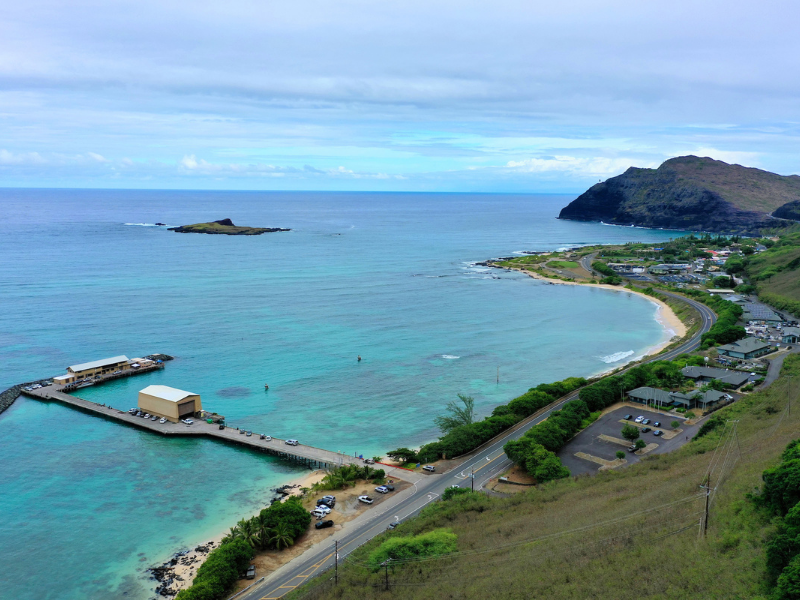Understanding Coral Reefs to Save Them from Demise

Coral reefs are the most diverse ecosystems in the world, and they are struggling to survive. The implications of dying corals mean coastal erosion, diminished fish catches, and a steep decline in thousands of species that critically depend on corals to exist.
HPU professor of oceanography Thomas DeCarlo, Ph.D., has recently co-written an article entitled, “Global declines in coral reef calcium carbonate production under ocean acidification and warming” in the May 2021 publication of Proceedings of the National Academy of Sciences of the United States of America.
“Coral reefs are in trouble,” said DeCarlo. “Living corals create a three-dimensional habitat that fish depend on to survive. If corals die you will have a less suitable habitat for fish and other organisms. Corals break the waves and prevent coastal erosion. It’s an economic benefit that they provide for free. Many beaches would disappear without living corals.”
DeCarlo received his Ph.D. from Massachusetts Institute of Technology (Woods Hole Oceanographic Institution) in 2016, and his B.A. in marine science from the University of San Diego in 2012. His work includes carbonate geochemistry, Raman spectroscopy, paleoceanography, remote sensing, and sclerochronology.
In August 2020, DeCarlo launched the Sclerochronology Lab at HPU, with the mission to study and grow corals in aquaria at its Makapu‘u campus that is also the home to aquaculture research leader Oceanic Institute (OI). OI of HPU is positioned at an ideal location to grow corals in Hawai‘i due to its unique running seawater filtration system and access to local reefs on its doorstep. DeCarlo and his team of HPU students will be able to control the water temperature to see how coral reefs respond to temperature stress.
“It’s challenging to do anything experimentally with corals if you are not in a tropical location,” said DeCarlo. “Having a facility like OI, with running seawater, and the ability to grow corals in aquaria is valuable and rare.”
DeCarlo has applied for permits with the state of Hawai‘i to grow coral at OI. He looks forward to the possible groundbreaking research and experimentation opportunities at the Sclerochronology Lab. DeCarlo currently has two master’s students working on coral reef samples from the Red Sea.
By August 2021, the Sclerochronology Lab will have four graduate and five undergraduate HPU students working on the study of patterns in skeletons of marine organisms, revealing a glimpse into the ocean’s past.
“I'm excited to continue researching fish response to a coral bleaching event in the Sclerochronology Lab,” says HPU graduate student Fiza Zahid. “We seek to understand how climate change is impacting not just corals, but commercially important fish species.”
There is a window of opportunity to save the environment and corals. Carbon dioxide emissions need to decrease significantly in order to slow the pace of ocean warming and acidification, both of which create inescapable threats to corals.
“A strong collective action like the Paris Climate Accord needs to take place in order to reduce emissions and save the environment for future generations,” said DeCarlo. “We need to vote in ways that lead to structural change toward a world less reliant on fossil fuels.”
To learn more about HPU and its Sclerochronology Lab at OI click here.

